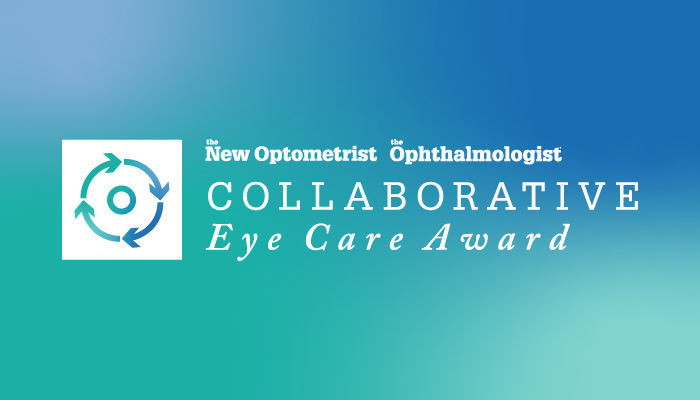

A few weeks ago we opened submissions for Collaborative Eye Care Award (CECA) 2025, a joint project between The Ophthalmologist and The New Optometrist. This annual award is open to UK-based teams that are working on initiatives that boost eye care through collaboration, whether that’s improving patient outcomes in primary care, finding new ways of sharing data and information, or changing the cultural mindset.
I’m delighted to say that we received a host of excellent submissions, which are detailed below.
We’d now like to ask you, via the form at the bottom of this page, to vote for one project that you think has the potential to bring optometrists, opticians, and ophthalmologists closer together and help to facilitate a more joined-up eye care service in the UK.
1. SeeAbility
The SeeAbility special schools eye care team has been delivering sight tests, dispensing glasses and providing accessible advice and information in person to children, parents and teachers in London special schools since 2013. They deliver outstanding eye care to over 3000 children in 25 London special schools. The “one stop shop” nature of support has helped alleviate pressure on paediatric eye clinics who can discharge to the service.
2. Visual Fixation System
Invented by Durham optometrist Simon Berry, the Visual Fixation System is a novel medical device used to enable eye tests to be completed more accurately for young children and patients with a learning disability. It aims to make eye tests more pleasant, more accurate, and more accessible for patients who have difficulty engaging with an optometrist or ophthalmologist.
3. Herefordshire LOC and Victoria Eye Unit
Since instigating the Low Vision scheme in 1994, Herefordshire LOC, local GPs, WyeValleyNHSTrust & the CCG/ICB have established the largest number of commissioned enhanced services in England, within one geographic area. Covering CUES, pre & post-cataract, enhanced glaucoma case finding, stable OHT/glaucoma monitoring, medical CL, fast-track wetARMD, paediatric & wetARMD discharge, the scheme has successfully removed over 22,000 HES appointments safely into the community.
4. Eyes On Tomorrow Podcast
The Eyes on Tomorrow podcast is hosted by ophthalmologist John Ferris and optometrist Dermot Keogh, who talk to leading eye care figures about their work, their influences, and new developments. Ferris and Keogh have worked closely together for 20 years and their podcast emphasizes how much optometrists and ophthalmologists have in common and “how much more productive we can be if we listen to and understand each other’s perspectives.”
5. Community Ophthalmic Link (COL)
The Community Ophthalmic Link (COL) project, a collaboration between Gloucestershire Clinical Commissioning Group (CCG), Gloucestershire Hospital Eye Services (HES), the Local Optical Committee (LOC), and Blueworks Ophthalmic Imaging Management Solutions, connects all community optometrists to the ophthalmology records of Gloucestershire Hospitals NHS Foundation Trust, allowing real-time access to all imaging data – including full volumetric OCT and visual fields – along with clinical outcomes.
6. Medical Retina Advice and Guidance Service
The Medical Retina Advice & Guidance (MRAG) pilot project enhances collaboration between community optometrists in North Central London (NCL) and hospital ophthalmology consultants specializing in retinal disorders. Developed collaboratively with the NCL Single Point of Access team, the Integrated Care Board, and the Local Optical Council, this innovative digital platform establishes robust protocols and clinical governance, safeguarding both patients and optometrists. MRAG allows community optometrists to seek expert advice without needing to refer patients directly.
